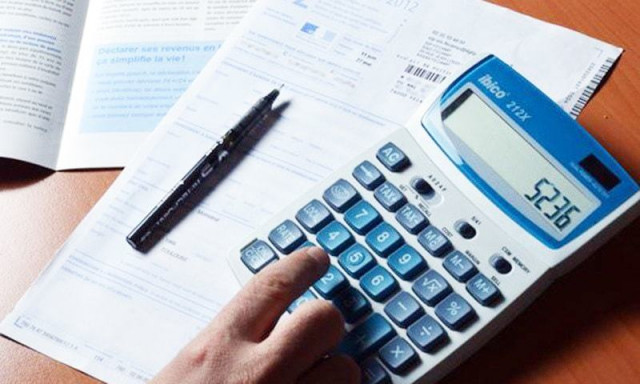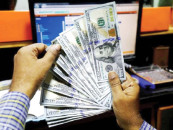Directory shows marked increase in direct tax collection
Author says FBR and SECP need to join hands to broaden the tax base

PHOTO: AFP
“However, the flip side is that the volume of indirect taxes has also shown a proportionate increase,” Suleri said while sharing his views with the audience at the launch of taxpayers’ directory ‘Between the lines’ by the Sustainable Development Policy Institute (SDPI).
The directory has been compiled by Shoaib Nizami with Mohsin Kazmi and Arsalan Channa as co-authors.
IMF questions levy of duties, weak tax regime
Suleri suggested that instead of adding the burden on the existing taxpayers as the report pointed out, the Federal Board of Revenue (FBR) should focus on broadening the tax base. Similarly, data discrepancies between the FBR and Securities and Exchange Commission of Pakistan also needed to be fixed, he added.
Nizami earlier presented details of the taxpayers and highlighted that the study had scrutinised 79,728 companies and associations registered with the FBR and SECP.
The directory reveals that a gross total of Rs484 billion was collected according to the tax returns filed between June 2015 and July 2016.
The data also reveals that 66 companies and associations paid taxes of over Rs1 billion and contributed a total amount of Rs231 billion.
Compared to the previous record of heavy tax-paying entities, this number is higher than 46 recorded in FY 2013-14 who paid Rs192 billion in taxes.
During this period, Rs735 billion was collected in direct tax, Rs344.688 billion was collected in income tax, the entities registered with the SECP stood at 61,989, the entities registered with the FBR were 64,545 whereas 37,939 companies paid taxes.
The author of the tax directory said analysis of the filed tax returns showed an interesting trend. “The banking sector grew rapidly while the energy sector’s contribution fell in FY17,” Nizami said.
“Public energy giants such as OGDC and others paid just Rs5 billion in taxes for FY17 compared to Rs36 billion in FY14. In just four years, this steep shrinkage is a matter of grave concern. Also Pakistan Petroleum, Attock Petroleum, Shell, Ceyron and Mari Petroleum’s tax amount shrank,” he said.
“Some increase is also seen as Government Holdings Private Limited paid Rs10 billion in FY 2016-17 against Rs7 billion in FY 2013-14 whereas PSO’s income tax increased by Rs210 million in the last four years.”
Wavering decision-makers: Government dithers at economy’s expense… again
He said the way forward required the SECP and FBR to join hands to increase tax returns. “Moreover, the Employees Old-Age Benefits Institution (EOBI), the one-stop shop of the SECP and FBR, needs to be further strengthened and SECP’s form 23 and 29 information should be shared with the FBR concerning companies’ directors and bank accounts.
Published in The Express Tribune, December 23rd, 2017.
Like Business on Facebook, follow @TribuneBiz on Twitter to stay informed and join in the conversation.



















COMMENTS
Comments are moderated and generally will be posted if they are on-topic and not abusive.
For more information, please see our Comments FAQ